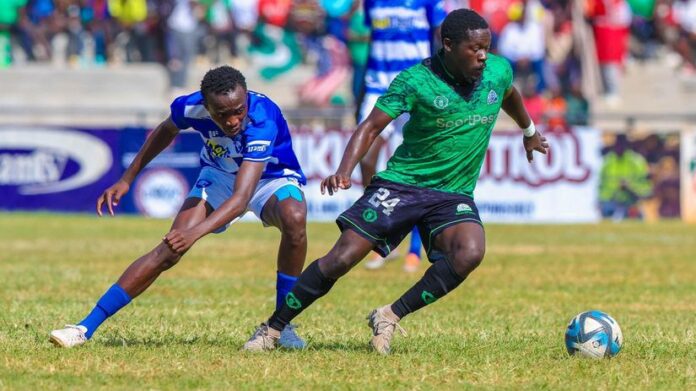HOMA BAY: What was supposed to be a historic and high-energy Mashemeji Derby at the newly refurbished Raila Odinga Stadium in Homa Bay on Monday was overshadowed by a conspicuous absence—the fans of AFC Leopards.
For the second time in two years, Ingwe supporters chose to boycott the derby, protesting what they termed as bias in the selection of the match venue.
Their absence from the 97th edition of Kenya’s biggest football rivalry muted the usual crackling atmosphere, leaving Gor Mahia fans to carry the weight of the occasion almost alone.
Initially scheduled for May but postponed due to unavailability of high-risk match venues in Nairobi, the derby was meant to be a celebration of football’s reach beyond the capital.
Instead, it highlighted divisions between the fan bases, with only the ever-energetic isukuti drummers bringing splashes of traditional color to the stands.
Gor Mahia fans filled the 20,000-seater stadium with green and white, but the match’s intensity faltered without their rivals.
“We turned up at Nyayo when they hosted the match,” lamented Gor supporter Obadhi Sirkal. “They should have done the same today. We wanted to show that a derby can thrive even outside Nairobi.”
Frederick, another fan, echoed this frustration: “We traveled from all corners of the country to be part of history, but it’s disheartening that our rivals chose not to show up.”
AFC Leopards supporters, however, stood firm in their protest, with one admitting regret: “It was a disappointing act. Looking at how the boys played today, had we been present, I believe we would have pushed them to victory.”
The match itself ended in a 1-1 draw, with Austin Odhiambo scoring for Gor Mahia and Brian Wanyama equalizing for AFC Leopards just after the break.
While the football delivered its share of drama, the real talking point was the boycott, which left a mark on what should have been a landmark moment in Kenya’s football calendar.

